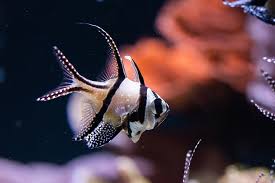The Dragon in Feng Shui: A Powerful Symbol for Home Energy

In Chinese Feng Shui (风水, fēng shuǐ), the dragon (龙, lóng) is one of the most auspicious symbols, representing power, prosperity, and protection. Unlike Western depictions of dragons as destructive creatures, Chinese dragons are considered benevolent, wise, and deeply connected to natural energy flows.
For centuries, Feng Shui masters have incorporated dragon symbolism into home design to attract wealth, ensure harmony, and enhance positive energy (气, qì). Whether through architecture, interior design, or landscape planning, dragons play a vital role in shaping the Feng Shui balance of a home.
The Five Elements and the Dragon’s Connection to Feng Shui Energy
Feng Shui operates on the principle of the Five Elements (五行, wǔ xíng):
- Wood (木, mù) – Growth and Vitality
- Fire (火, huǒ) – Passion and Energy
- Earth (土, tǔ) – Stability and Balance
- Metal (金, jīn) – Wealth and Strength
- Water (水, shuǐ) – Flow and Abundance
The dragon is particularly linked to the Wood and Water elements, making it a powerful symbol of continuous prosperity and life force. In home design, placing dragon imagery in areas connected to these elements helps activate wealth and harmony.
Dragon Placement in Home Design According to Feng Shui
1. The Dragon’s Ideal Location in the Home
In Feng Shui, the left side of the home (the Green Dragon side, 青龙, qīng lóng) is the most favorable position for dragon symbols.
- Left side of the main entrance: Encourages financial success.
- Left side of the living room: Enhances positive energy.
- Near water elements (fountains, fish tanks): Amplifies wealth and career growth.
Placing a dragon on the right side of the house is considered inauspicious, as this is the domain of the White Tiger (白虎, bái hǔ), which can create imbalance.
2. Dragons in the Living Room
The living room is an essential space for family gatherings and energy circulation. A dragon painting or sculpture in the living room can:
✔ Enhance family unity and success.
✔ Attract opportunities for growth and career advancement.
✔ Protect the home from negative influences.
However, it is essential to avoid placing dragons too high on the wall, as it may create an overwhelming energy that disrupts harmony.
3. Dragons in the Bedroom: A Cautious Approach
While dragons symbolize strength and ambition, they are considered too yang (阳, yáng) in energy for bedrooms, which require a more balanced and peaceful atmosphere.
- If a dragon is placed in a couple’s bedroom, it should be subtle and gentle in design, avoiding aggressive postures.
- Avoid large dragon sculptures or paintings in sleeping areas, as they may create restlessness and tension.
4. Dragons in the Office or Study Room
For professionals and business owners, a dragon placed in an office or study area can boost creativity, leadership, and financial success.
- A golden dragon statue near the desk or workspace is believed to improve decision-making and career growth.
- A dragon scroll painting behind the desk symbolizes authority and wisdom.
5. Dragons in the Garden and Outdoor Spaces
Placing dragon statues in the garden can protect the home from negative forces while enhancing the natural energy flow.
- Dragon fountains help circulate prosperous water energy, promoting financial stability.
- Dragon pathways (walkways with dragon engravings) guide positive energy into the home.
The Relationship Between Dragons and Feng Shui Wealth Symbols
1. The Dragon and the Phoenix: Perfect Harmony
In Feng Shui, the Dragon and the Phoenix (龙凤, lóng fèng) are paired together to symbolize ultimate harmony, prosperity, and marital bliss.
- A Dragon-Phoenix figurine in the living room attracts wealth and a balanced household.
- Business partnerships benefit from this combination, as it symbolizes success and longevity.
2. The Dragon and the Pearl: The Pursuit of Wealth
Many dragon sculptures depict the dragon chasing a pearl (龙戏珠, lóng xì zhū), representing the pursuit of wisdom and fortune.
- A dragon holding a pearl near the main entrance brings good luck and prosperity.
- The pearl also symbolizes continuous knowledge and personal development.
3. The Dragon-Turtle Hybrid: Stability and Success
The Dragon-Turtle (龙龟, lóng guī) is a legendary Feng Shui creature combining the dragon’s strength with the turtle’s stability.
- Placed on a work desk, it enhances career stability and financial gains.
- Near the entrance, it provides long-term protection and wealth accumulation.
Common Feng Shui Mistakes When Using Dragon Symbols
1. Placing Too Many Dragons
While dragons are powerful symbols, an excessive number in a home can create overwhelming energy, leading to tension and imbalance. Feng Shui experts recommend a maximum of five dragons in different areas of the house.
2. Using Dragons in Cluttered or Dirty Spaces
A dragon placed in an untidy, neglected area will absorb negative energy instead of bringing prosperity. It is essential to keep the surroundings clean and organized.
3. Facing the Dragon in the Wrong Direction
- A dragon should never face downward, as it symbolizes energy loss.
- It should always face towards an open space (windows, doors) to encourage positive energy flow.
Modern Home Designs Incorporating Feng Shui Dragon Elements
In contemporary interior design, many architects and homeowners blend traditional dragon Feng Shui principles with modern aesthetics.
- Minimalist dragon wall art – Adds a touch of cultural elegance while maintaining balance.
- Golden dragon accents on furniture – A subtle way to incorporate prosperity symbols.
- Water features with dragon motifs – Merging traditional Feng Shui with modern landscaping.
Conclusion
Dragons hold an unparalleled significance in Feng Shui home design, influencing energy flow, prosperity, and protection. Whether through statues, artwork, architecture, or landscaping, incorporating dragon symbolism can enhance harmony, wealth, and positive energy in a household.
By understanding the proper placement and balance of dragons, homeowners can harness their auspicious power while maintaining a peaceful and prosperous living space.
Leave a Reply